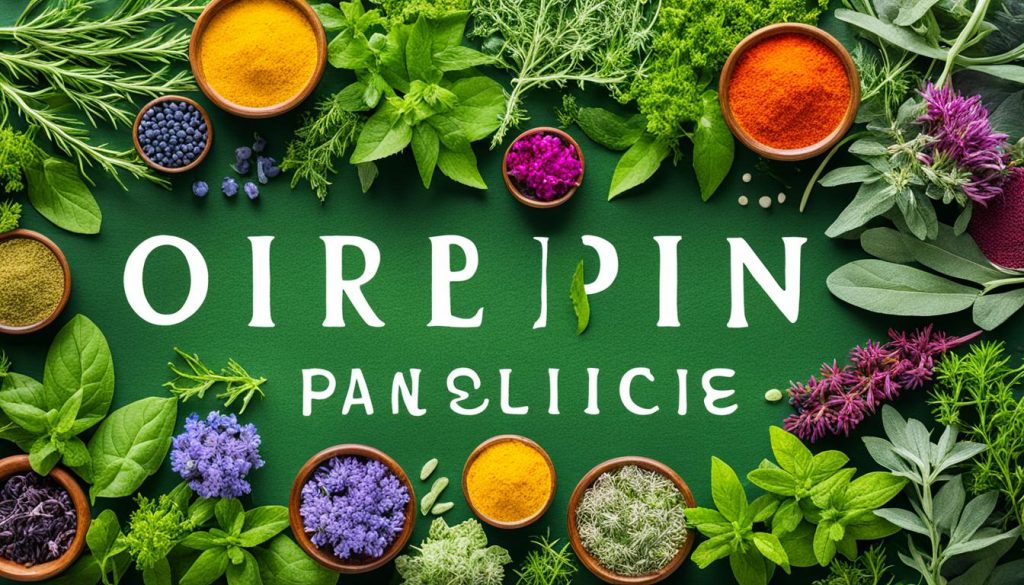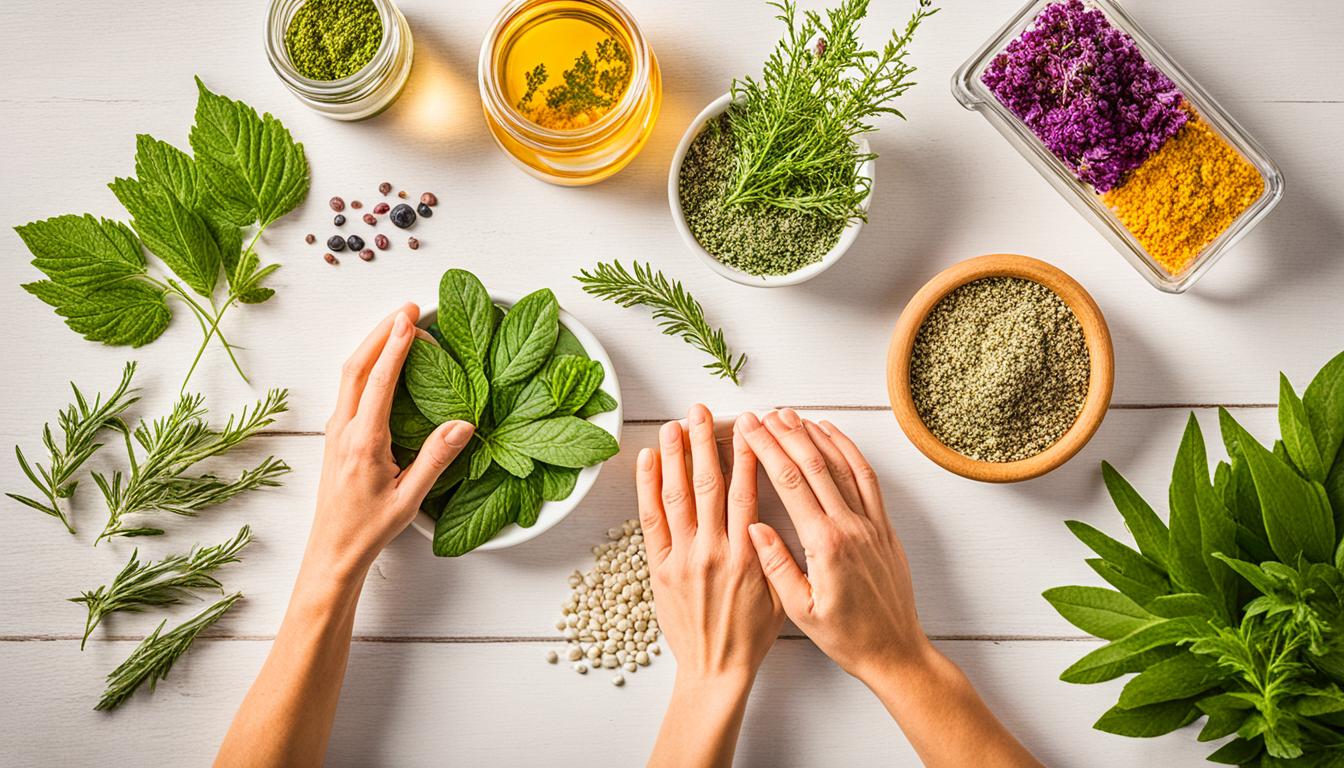Have you ever thought about a better way to handle joint pain without always using drugs? Millions of Americans deal with joint pain. They’re looking for natural ways to feel better.
Joint pain affects people of all ages, especially those who stay active or get older. More people are now choosing natural supplements for help. These options aim to ease pain and improve joint health.
Studies show more people are picking holistic joint therapy for relief. Could this be the answer to better joint health?
Quick Recommendation: Our blog takes you through the many natural supplements for joint pain relief. If you're interested in exploring the subject of joint pain relief and joint health more comprehensively, we recommend the Joint Health 101 eBook.
The Importance of Joint Health
Keeping your joints healthy is key to feeling good overall. It lets you move easily, enjoy hobbies, and do everyday tasks without pain. Taking good care of your joints is crucial for staying active.

Your cartilage is a big part of joint health. It helps your joints move smoothly and prevents bones from rubbing together. To keep your cartilage strong, exercise regularly, eat well, and drink plenty of water.
If you ignore your joints, you could face big problems like less mobility, constant pain, and a lower quality of life. Taking care of your joints means you can keep doing the things you love. It’s a smart move for a happy, active life.
Common Causes of Joint Pain
Many people deal with joint pain, and knowing why is key to finding relief. Injury is a big cause of joint inflammation. Things like sprains, strains, or fractures can cause a lot of pain and may lead to ongoing problems if not treated right.
Repetitive activities can also cause joint pain over time. This is known as overuse injuries.
Arthritis is another big cause of joint pain. It includes conditions like osteoarthritis and rheumatoid arthritis. Osteoarthritis happens when joints wear out and cartilage breaks down. Rheumatoid arthritis is when the immune system attacks the body’s own tissues, causing inflammation and pain.

Autoimmune disorders like lupus and gout can also trigger joint inflammation. These conditions lead to swelling, redness, and pain in the joints. Being overweight and not staying active can also make joint pain worse. Carrying extra weight puts more stress on the joints.
These factors show that there are many reasons for joint pain. It’s important to figure out the cause to find the best treatment. Whether it’s from injury, arthritis, or another issue, knowing the cause is the first step to feeling better.
Overview of Natural Remedies
If you’re looking for ways to ease joint pain, there are many options. These include changing your diet, taking certain supplements, doing physical therapy, and making lifestyle changes. All these can help improve your joint health.
Starting with diet, eating foods that fight inflammation is key. Think of fatty fish, leafy greens, and nuts. Adding turmeric to your meals can also help, thanks to its anti-inflammatory effects.

Supplements are also important. Turmeric, ginger, and Boswellia are great for joint care. They help reduce inflammation and pain with fewer side effects than traditional medicines. These supplements are a good choice for those looking for alternative joint care.
Physical therapy and regular exercise are also key. Activities like swimming, cycling, and yoga are great for keeping your joints flexible and strong. When combined with herbal joint care, they offer full support for your joint health.
Turmeric and Curcumin for Joint Pain
Turmeric and its active compound curcumin are great for managing joint pain naturally. They are known for their strong anti-inflammatory and pain-relieving effects. Turmeric supplements are getting more popular because they work well and are easy to use.

Research supports the benefits of adding turmeric to your daily routine. Studies show that turmeric’s curcumin can fight inflammation as well as some drugs but with fewer side effects. This makes turmeric a top choice for those looking for natural relief from joint pain.
The curcuminoid complex in turmeric makes it even more effective for joint health. Taking turmeric supplements often can help reduce inflammation and ease joint pain. Many people find it easy and helpful to add turmeric to their daily life, whether through supplements or food.
Learning about turmeric and curcumin’s role in joint pain can help you make better health choices. If you’re dealing with chronic or occasional joint pain, trying turmeric supplements could be a good step.
Omega-3 Fatty Acids and Fish Oil
Fish oil is great for easing joint stiffness and tenderness. It’s packed with omega-3 fatty acids that help fight inflammation. These acids are key for people with arthritis. Studies back up its effectiveness as a natural treatment.

EPA and DHA in fish oil are vital for joint health. They cut down on inflammatory proteins. This can lessen joint pain and swelling. Adding these supplements to your diet can make joints more flexible and comfortable.
When thinking about omega-3 supplements, know the difference between marine and plant sources. Fish oil is full of EPA and DHA, important for joints. Plant sources like flaxseed and chia seeds have ALA, but your body changes it less efficiently. So, marine sources are better for joint health.
Glucosamine and Chondroitin
Glucosamine sulfate and chondroitin sulfate supplements are often talked about for joint health. They are natural compounds that could help with joint cartilage repair. Knowing how they work can help you decide if they’re good for you.
Glucosamine sulfate is a substance your body makes naturally. It’s key for making and fixing cartilage molecules. This makes it great for repairing joint cartilage, helping keep your joints flexible and strong.
Chondroitin sulfate supplements help keep cartilage hydrated, keeping it soft and flexible. This helps your joints absorb shocks better, keeping them healthy and working well.
Studies and people’s stories show that glucosamine sulfate and chondroitin sulfate supplements help. Many say they feel less joint pain and can move better. Even though results differ, these supplements are seen as a natural way to keep joints healthy.
Quick Recommendation: Our blog takes you through the many natural supplements for joint pain relief. If you're interested in exploring the subject of joint pain relief and joint health more comprehensively, we recommend the Joint Health 101 eBook.
MSM (Methylsulfonylmethane)
MSM stands for Methylsulfonylmethane. It’s a natural sulfur compound found in plants, animals, and humans. It’s known for helping with joint health. Many people use MSM for joint pain relief because it works well and studies show good results.
MSM helps reduce inflammation, which can ease joint pain and discomfort. The sulfur in MSM is key to keeping connective tissues strong, like cartilage and tendons. This makes MSM a great choice for supporting joint health naturally.
Studies show MSM can also help people move better if they have joint pain. A study in the “International Journal of Biomedical Science” found that people taking MSM moved more easily and felt less stiff. This is great news for athletes and anyone who wants to stay active.
MSM is often taken with glucosamine and chondroitin for better joint health. These supplements work together to help manage joint pain and support joint health over time.
Herbal Supplements for Joint Pain
Natural herb remedies are a great alternative to traditional medicines for joint pain. Ginger is a top choice because it fights inflammation well. Studies show it can lessen joint pain and stiffness, especially in people with osteoarthritis.
Boswellia, also known as Indian frankincense, is another strong option. Its boswellic acids are strong anti-inflammatories that help with joint pain and improve movement. You can take Boswellia as capsules or tablets for its benefits.
Stinging nettle is also a good choice for easing joint pain. It may seem scary, but it has compounds that reduce inflammation and ease joint pain. Research suggests it works well in tea or supplement form.
These herbal remedies are backed by lots of research, proving they help with pain relief. Always follow the recommended amounts to get the most benefit from them.
The Role of Antioxidants
Antioxidants are key to keeping joints healthy. They fight inflammation and oxidative stress. This helps reduce the pain in joints.
They neutralize free radicals, harmful molecules that can damage cells and tissues.
Eating antioxidants can boost your body’s fight against oxidative stress. Foods like fruits, vegetables, nuts, and seeds are great sources. Berries are packed with vitamins C and E, which fight inflammation.
Adding antioxidant-rich foods to your diet helps protect against free radical damage. This is good for your joints and overall health. Green tea, for example, has catechins that help reduce oxidative stress.
Dosage and Safety Considerations
When using natural supplements for joint health, it’s key to follow safety guidelines. Knowing the right dosages is crucial for effectiveness and safety.
Always talk to your healthcare provider before starting a new supplement. This is crucial to avoid bad reactions with other medicines you might be taking. Your doctor can give advice that fits your health needs.
It’s important to stick to the recommended dosages for joint health. Supplements like turmeric, omega-3 fatty acids, or glucosamine have specific amounts based on studies. Taking more than the recommended dose can cause side effects.
Also, be careful about interactions and contraindications. Some supplements might not mix well with certain medicines or health conditions. For example, turmeric supplements can make blood thinners work too well.
In short, follow safety guidelines, know the right dosages, and watch for interactions. Always put your health first by getting professional advice before changing your supplements.
Lifestyle Changes for Better Joint Health
Changing your daily habits is key to better joint health. Start by doing joint-friendly exercises like swimming, cycling, and yoga. These activities help reduce joint strain, improve flexibility, and strengthen muscles around your joints.
Eating right is also crucial for joint health. Foods rich in nutrients, such as leafy greens, fatty fish, nuts, and fruits, support your joints. Adding foods high in antioxidants, like berries and green tea, can fight inflammation and reduce pain.
Keeping a healthy weight is important for your joints. A healthy weight lessens the stress on joints like the knees and hips. Simple actions like eating mindfully, controlling portions, and staying active can help you manage your weight.
Don’t forget how stress affects your joints. Chronic stress can make inflammation and pain worse. Using meditation, deep breathing, and mindfulness can lower stress and improve joint health.
By making these lifestyle changes, you can manage joint pain naturally. This ensures better joint health and wellness over time.
Conclusion
Taking care of your joints in a holistic way is key to feeling good and staying healthy. We’ve looked at natural supplements like turmeric, curcumin, Omega-3 fatty acids, and fish oil. These options can help ease joint pain and boost joint health.
But, it’s not just about taking supplements. Changing your lifestyle is also important. This means keeping a healthy weight, exercising regularly, and eating foods full of antioxidants. These changes help a lot when combined with supplements.
When looking for natural ways to improve your joint health, try adding these tips to your daily life. Always check with health experts if you need to. Stick with a holistic approach to joint care. This will help you live a more comfortable and active life.
Quick Recommendation: Our blog takes you through the many natural supplements for joint pain relief. If you're interested in exploring the subject of joint pain relief and joint health more comprehensively, we recommend the Joint Health 101 eBook.


I don’t think the title of your article matches the content lol. Just kidding, mainly because I had some doubts after reading the article.